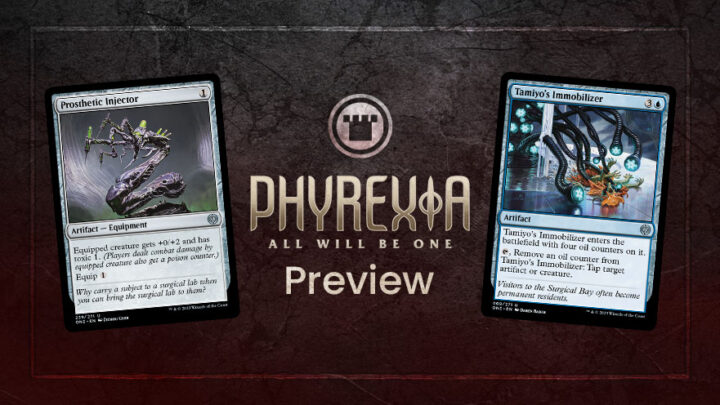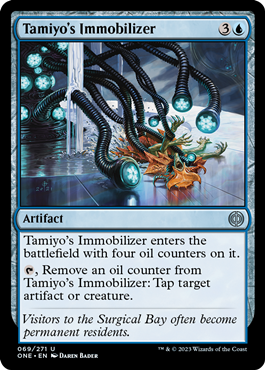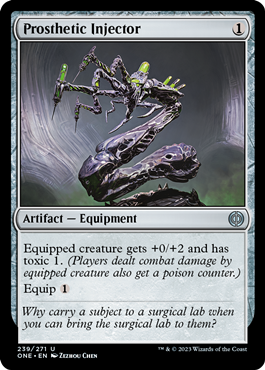Up until now, the word “toxic” in Magic referred to behavior that made people not want to play with you anymore. With Phyrexia: All Will Be One, we now have the Toxic mechanic, meaning I can title this article “How to Be Toxic” and mean it without suddenly becoming a terrible person of one sort or another.
But as we’ve seen with any mechanic involving poison, Toxic is still sure to draw its share of haters. To understand why, we first need some context on the Toxic mechanic with a little history lesson, all while looking at a pair of preview cards provided by Wizards of the Coast for free:
The History of Toxicity
Poison counters in Magic date all the way back to Legends, in the early days of the game, appearing on two cards: Pit Scorpion and Serpent Generator. A few more cards would appear over the next few years (including Leeches, notable as still the only card in the game that explicitly removes poison counters), fizzling out in 1997 with Visions’ Suq’Ata Assassin.
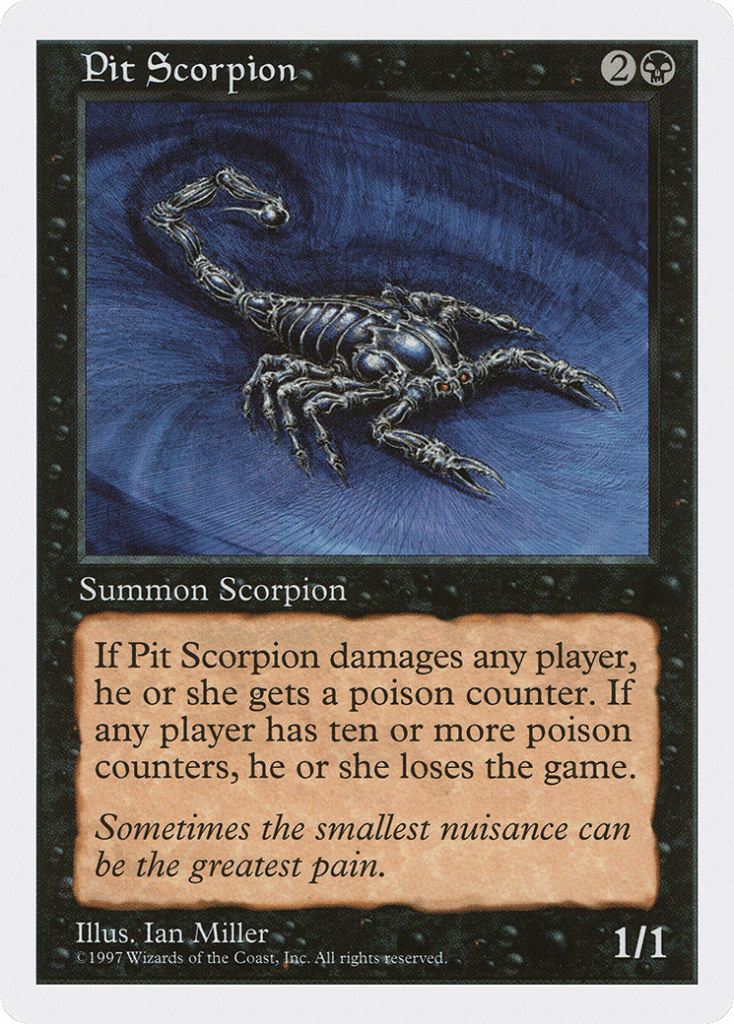
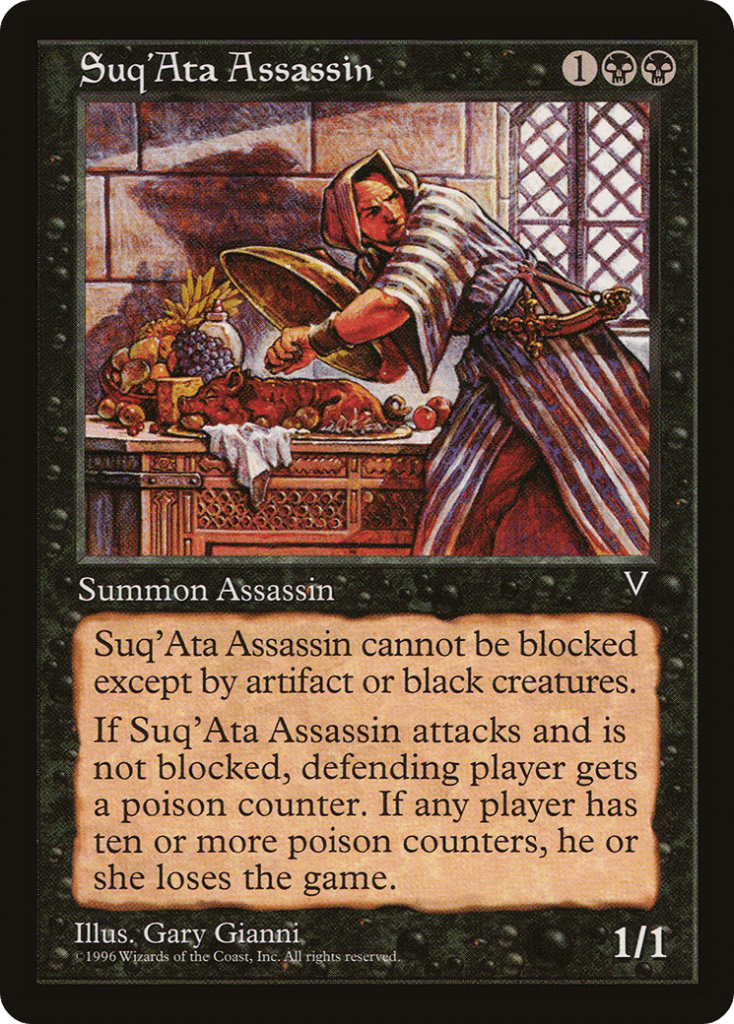
It would take a full ten years for Poison counters to make a comeback in Future Sight with the Poisonous mechanic, followed by another few years of quiet on the poison front. Then came Scars of Mirrodin block, and with it, Infect.
Infect was strong, intimidating and well-represented, with 56 cards in the block having the mechanic — vastly dwarfing the previous number of cards in Magic that dealt with Poison counters at all. It was also controversial, with some feeling it made Poison way too powerful, essentially cutting the damage needed to win the game in half.
Infect spawned archetypical decks in every format it was legal in and quickly became a kill-the-player-using-it-on-sight mechanic in Commander, right as that format was gaining mainstream momentum.
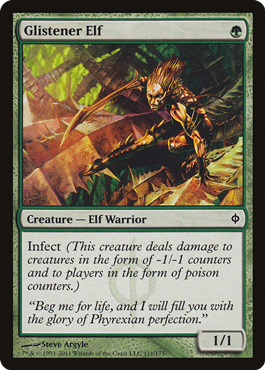
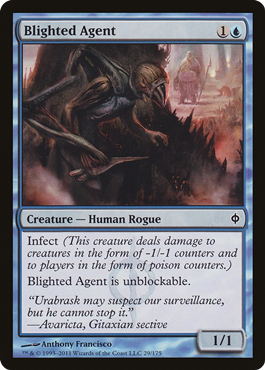
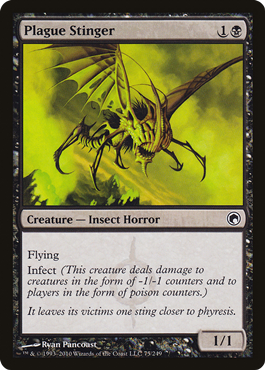
And now, we have Toxic, which straddles the middle ground between Infect and Poisonous. Unlike Poisonous, Toxic is not a triggered ability; the attacked player will get the Poison counters at the same time that damage gets dealt in combat.
Unlike Infect, Toxic doesn’t affect other creatures and decouples the amount of poison counters from the attacking creature’s power. Will it be better received than Infect? That remains to be seen — but we can help ensure it is if we determine a little bit of etiquette ahead of time.
How to Be Toxic
Like Poisonous (and unlike Infect), Toxic requires you to deal combat damage to a player in order to give Poison counters to them. Now, you can use the normal methods to clear the path for your Toxic creature; removal spells, bounce effects, etc. In order to lessen the blow of a poison mechanic, might I suggest simply tapping down your opponent’s creatures?
Tamiyo’s Immobilizer allows your creature to hit your opponent while still leaving your opponent’s creature on the board. Of course, you can only do this four times before the Immobilizer runs out of oil.
Luckily, Proliferate is coming back in this set as well, meaning you’ll have ways to refuel the Immobilizer — all while upping the poison counters on your opponent, as long as they already have one to begin with.
Like both Infect and Poisonous creatures before them, Toxic creatures are likely to be on the smaller end relative to their mana costs (outside of some of the pushed rares and mythics, of course). For a long time, folks in Commander have been getting around that limitation by using cards that grant Infect to any creature — most notably Triumph of the Hordes and Grafted Exoskeleton.
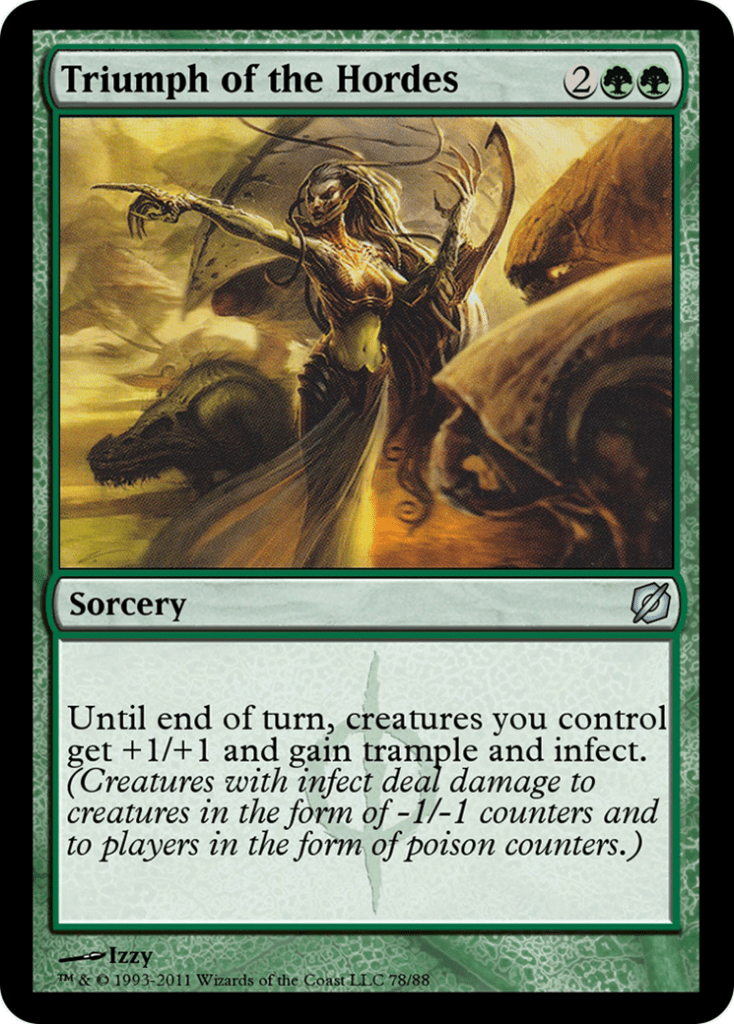
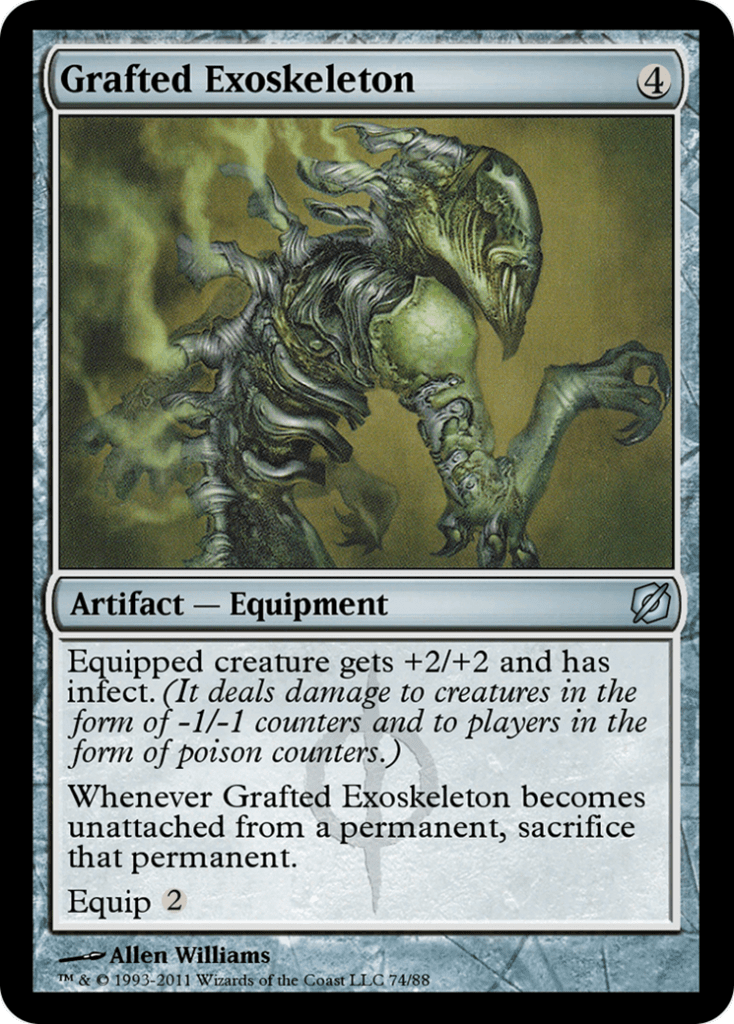
These cards work as ways to hide what it is you’re trying to do, allowing you to work with a Poison game plan without needing to telegraph it. Grafted Exoskeleton is a bit clunky, being relatively expensive to cast and equip while extracting a major cost if you need to switch which creature is equipped.
While Toxic packs a little less punch than Infect (by design), Prosthetic Injector is an equipment that provides a little more flexibility than the Exoskeleton while still working towards that same, Poison win. It just does so a little less urgently.
Prosthetic Injector can come down very early and attach to the first even semi-evasive threat you have. It’s likely not the haymaker swing that Grafted Exoskeleton can be, but it’s a very good way to spread around some poison counters early.
One of the things that made Infect so divisive is the way it would end games seemingly out of nowhere. Prosthetic Injector moves at a much more deliberate pace.
Alternate win conditions tend to be all-or-nothing propositions, with Infect and strategies like Thassa’s Oracle often trying to end the game (or at least knock one player out) over the course of one or two turns. Even Mill strategies will often try to set up big turns, rarely going for a long-term, attrition style of play.
Toxic (based on the previews we’ve seen so far, anyway) seems to be a little less splashy. I’m certain there will be Toxic cards that can win out of nowhere, but overall the mechanic operates in a lower gear than Infect.
While Infect worked well with Proliferate, it often felt like dedicating that much space to that synergy wasn’t worth the effort, as pushing through with Infect alone was a more streamlined strategy. Toxic feels just at the right power level to be truly synergistic with Proliferate.
All of which is to say Toxic feels like the more polite version of Infect, if such a thing can exist. It requires just a little bit more work to win with than Infect, and is built to give opponents a little more time to try and fight back. Of course, fighting back against our machine overlords is ultimately futile, and all should join in the perfection of compleation.
Hm. I think I may need to see a doctor. Or pick up some Leeches.
End Step
I think the slight downgrade in power level from Infect and the slightly slower pace of Toxic will make some people misread how good the mechanic is. It’s not that Toxic is weak; it’s more that Infect was insanely strong.
I very much like the middle ground that Toxic seems poised to carve out for itself in the landscape of Poison mechanics. And I really look forward to playing a Toxic/Proliferate deck in Phyrexia: All Will Be One Limited.

Chris is the Marketing Communications Coordinator (and editor of the blog) at Card Kingdom. He would like to apologize to his son for not holding onto more cards from when he first started playing, as that likely would have paid for college. He enjoys pretty much all formats of Magic, but usually ends up playing decks that make other people dislike playing those formats with him.

